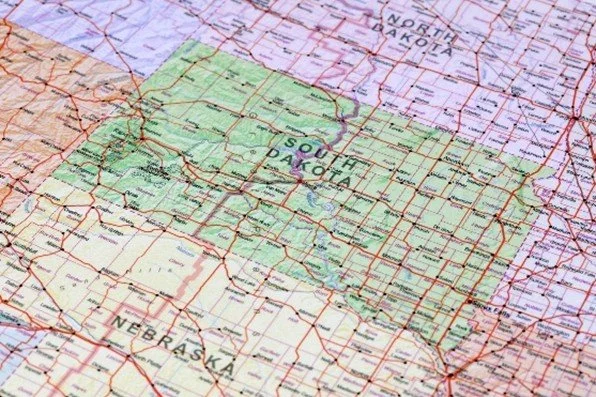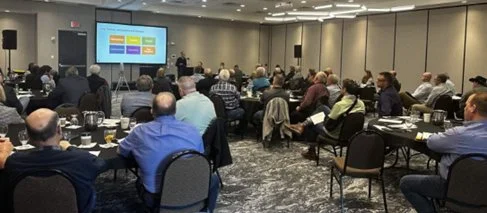moving forward
Explore Dakota Mainstem’s key milestones to understand past achievements and the road ahead.
2021: ORGANIZATIONAL CONCEPT
In 2021, water leaders from eastern South Dakota began to discuss the region’s water development trajectory. Although large water projects, such as Lewis & Clark Regional Water System, were operating and successful, this group recognized the region’s arid climate, vulnerability to drought, groundwater availability, and water quality issues still posed urgent challenges.
This pivotal moment coincided with the emergence of other large-scale initiatives like the Water Investment in Northern South Dakota (WINS) and the Western Dakota Regional Water System, spotlighting the need for a comprehensive water solution for the entire state.
2022: PRELIMINARY RESEARCH
A small group of water providers surveyed South Dakota water systems to begin to understand their needs. They also began to study the complexity, cost, legal requirements, and political challenges of initiating a large water project. The preliminary research indicated a compelling need for a new regional water source.
2023-2025: EARLY YEARS
In 2023, Dakota Mainstem was founded by 29 members under the leadership of its first executive director, Kurt Pfeifle. After incorporating, it adopted bylaws on August 1, 2023. The group began what is likely to be a decades-long process of developing a new regional water source by hiring a technical advisor, HDR.
By the end of 2024, Dakota Mainstem’s membership had grown to over 50 members spread across three states and one Native nation: South Dakota, Iowa, Minnesota, and Santee Sioux Nation.
2024 - 2025: APPRAISAL STUDY
Using existing data from Dakota Mainstem’s members, an appraisal study assessed regional water supply problems and needs. As the first step in the Bureau of Reclamation’s (BOR) planning process, it provided an initial estimate of water demand, needed system capacity, likely water sources, and project alternatives. The results help the Bureau of Reclamation decide whether to advance to a full-scale feasibility study.
2025
Several key milestones occurred in the first half of 2025:
Dakota Mainstem representatives participated in a Washington D.C. fly-in during National Rural Water Rally to introduce the regional water system to congressional delegates.
Dakota Mainstem held its first in-person annual meeting in Sioux Falls.
The board tasked HDR with the development of an Organizational Roadmap and Financial Alternatives Analysis for Dakota Mainstem.
LOOKING AHEAD
Planning, design, funding, and construction of a large-scale regional water system can take decades. In the next five years, Dakota Mainstem plans to:
Receive Congressional Authorizations
2026
Congress must authorize the BOR’s participation in Dakota Mainstem’s development. In the coming years, Dakota Mainstem and the BOR will seek an authorization to initiate planning through a feasibility study (2026). This authorization will allow the BOR the authority to participate in the feasibility study both technically and financially. If this is passed by Congress, funding will then be allocated to the regional water system (2027+). Dakota Mainstem and the BOR will then seek a separate authorization for construction (2028+).
Complete a Feasibility Study
2026 – 2027
This study collects primary data to analyze the technical and economic feasibility of a preferred project concept and reasonable alternatives to it. This phase of planning includes preliminary design, environmental impact studies, cost estimation, project scheduling, and economic analyses. It provides the foundation for congressional authorization and funding.
Begin Project Development
2027+
This phase will complete the details of Dakota Mainstem’s water supply solution. It includes the final design of facilities and conveyance infrastructure, state and federal environmental reviews, right-of-way and easement planning and acquisition, and the establishment of any interorganizational agreements related to infrastructure construction or use.
Secure Funding
Ongoing
The primary funding mechanisms under exploration include federal and state funding (e.g., grants, Congressionally Directed Spending, and long-term borrowing with favorable interest rates) and member contributions (e.g., rates, long-term borrowing, grants secured by members).




